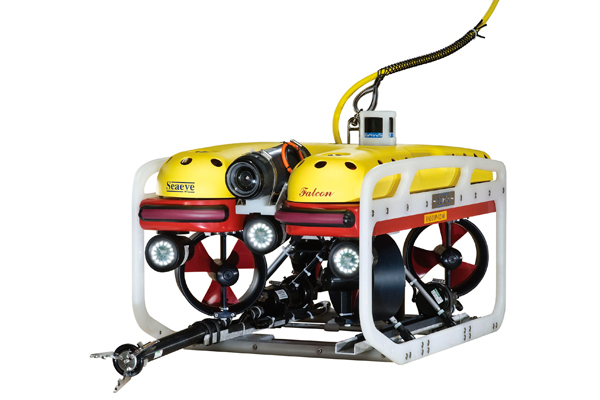
US maritime graduates to fly pioneering Falcon
MICHIGAN, July 31, 2015
America’s first Bachelor of Science in Maritime Technology, offered by Northwestern Michigan College, is to get a special Falcon remotely operated vehicle (ROV).
The Falcon will be fitted with an advanced sonar system that will help graduates study ROVs as a multicomponent resource used across a wide range of subsea activities, said a statement.
The aim of the BSc programme is for graduates to be proficient in applied technology for the marine industry onshore and offshore, it said.
Their studies cover the calibration, deployment, operation, maintenance, and management of marine technology assets, including data collection, processing and mapping.
The students will employ the Falcon to evaluate systems integration and the effect on underwater performance when different equipment is added.
They will also benefit from first-hand experience in piloting the ROV under International Marine Contractors Association guidelines.
In choosing the Falcon, Hans VanSumeren, director of the Great Lakes Water Studies Institute at the college, said that the Falcon’s intelligent architecture and its five powerful thrusters, offers the flexibility, versatility and power to allow students to fit and study an array of sophisticated equipment.
The distributed intelligent control architecture makes it straightforward to add and change a variety of systems, including manipulators, cutters, cameras and survey and sonar systems.
It has enabled the college to develop their pioneering concept that for the first time incorporates a Kongsberg M3 multi-beam sonar and a Greensea station-keeping system onto an ROV the size of a Falcon.
The capability will significantly enhance the experience of the students in exploring and extending technological capabilities of ROV operations and management.
The advanced sonar system will enable students to experience a range of imaging and profiling data collection options that include bathymetric measurement, seafloor imaging, obstacle avoidance, structural inspection and vessel hull inspection.
VanSumeren also likes that its small size makes it easy to manhandle into the water, yet it has the thruster power to work both in strong currents and be highly manoeuvrable - even when fitted with an array of tools and imaging systems.
Students will have the opportunity to operate the Falcon in the Great Lakes from a research vessel or dockside, and in a newly built test tank facility with a 260,000 litre capacity.
The tank has considerably extended the operating and development opportunities for students, said VanSumeren.
“We encourage students to build their own systems and ready access to the tank allows them to be more creative.”
“The Falcon is the most widely used ROV in the industry and therefore the one students are most likely to come across in their working life,” he added. - TradeArabia News Service







